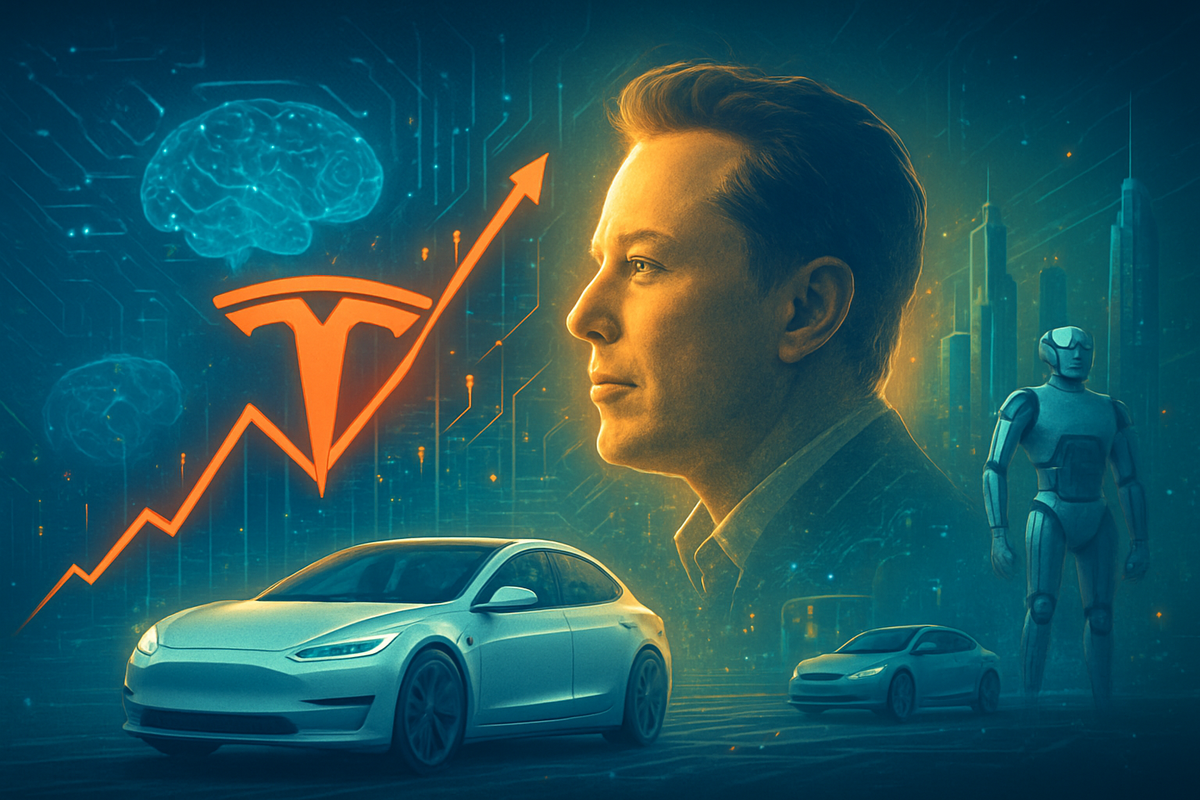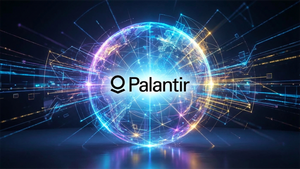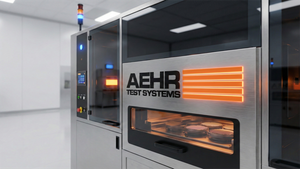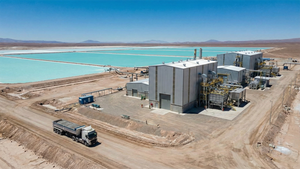Financial News
Tesla Soars on Musk's AI Revelations, Propelling Tech Sector Rally

Tesla (NASDAQ: TSLA) witnessed a remarkable surge in its stock price today, November 24, 2025, with shares climbing significantly and positioning the electric vehicle and AI giant as a top market mover. This substantial jump was primarily ignited by a series of bold pronouncements from CEO Elon Musk regarding the company's advanced artificial intelligence chip development. The news not only electrified Tesla investors but also contributed to a broader rebound across the technology sector, signaling renewed confidence in AI-driven innovation.
Musk's recent "AI boast" on his social media platform detailed unprecedented progress in Tesla's in-house AI capabilities, painting a picture of a company rapidly advancing beyond mere automotive manufacturing into a dominant force in AI and robotics. This strategic repositioning and the tangible evidence of technological leadership have captivated the market, underscoring Tesla's pivotal role in shaping the future of autonomous technology and beyond.
Unpacking Tesla's AI-Powered Ascent
The catalyst for today's impressive performance was Elon Musk's weekend revelation of Tesla's formidable strides in artificial intelligence chip engineering. Musk disclosed that Tesla has for years maintained a cutting-edge team dedicated to AI chip and board development, already deploying millions of custom AI chips within its vast fleet of vehicles and sophisticated data centers. This infrastructure, he asserted, underpins the company's "real-world AI" leadership, a critical component of its full self-driving ambitions.
Further fueling investor excitement, Musk announced that Tesla is nearing the "tape out" phase for its fifth-generation AI chip, dubbed AI5, with development for AI6 already well underway. In a particularly audacious claim, the CEO projected that Tesla aims to introduce a new high-volume chip design annually and anticipates producing more AI chips than all other AI chipmakers combined. These advanced chips, according to Musk, are not merely incremental improvements but are poised to "profoundly change the world" by enhancing driving safety and enabling sophisticated medical care through the company's Optimus robot.
The market's reaction was swift and overwhelmingly positive. Tesla shares surged between 6% and 7% on November 24, firmly establishing it as one of the top performers within the S&P 500 (INDEXSP: .INX). This enthusiasm was contagious, contributing to a robust rally across the technology sector, with the tech-heavy Nasdaq Composite (NASDAQ: .IXIC) climbing over 2%. The broader market uplift was also supported by strong earnings from other AI players like Nvidia (NASDAQ: NVDA) and excitement around Alphabet's (NASDAQ: GOOGL) Gemini 3 AI model, suggesting a renewed investor appetite for AI infrastructure and innovation.
This significant gain helped Tesla's stock not only recover from a recent dip but also move back into positive territory for the year. Analyst sentiment echoed the market's optimism, with firms like Melius reiterating a "bullish" stance on TSLA, labeling it a "must-own" stock. Analysts cited Tesla's expanding lead in critical areas such as chips, vertical integration, and software design, particularly within the burgeoning fields of autonomy and AI adoption in transportation. Stifel also reportedly raised its price target for Tesla, acknowledging progress in its Robotaxi network and the strong early performance of its Full Self-Driving (FSD) Version 14.
Shifting Sands: Winners and Losers in the AI Race
Tesla's (NASDAQ: TSLA) aggressive push into advanced AI chip development, underscored by Elon Musk's recent pronouncements, is set to redraw the competitive landscape across several industries, creating both significant opportunities and formidable challenges for public companies. The company's strategic pivot towards its in-house AI5 and AI6 inference chips, designed to power its Full Self-Driving (FSD) technology and the burgeoning Optimus robot initiative, signals a new era of vertical integration that could leave many competitors scrambling.
Among the clearest beneficiaries are the semiconductor foundries capable of manufacturing these cutting-edge chips. Taiwan Semiconductor Manufacturing Company (NYSE: TSM) and Samsung Electronics (KRX: 005930) are poised to secure substantial contracts from Tesla, solidifying their positions as critical partners in the high-growth AI hardware market. Tesla's ambitious roadmap for new chip designs every 12 months translates directly into sustained revenue streams for these manufacturing giants. Furthermore, raw material suppliers for advanced semiconductors and specialized AI software and tooling providers could see increased demand as the industry accelerates its AI development efforts, spurred by Tesla's advancements. In the long term, energy and utility companies could also benefit from the increased power demands of widespread Robotaxi services and large AI data centers.
Conversely, the competitive pressure on other autonomous driving technology developers is set to intensify. Companies like Waymo (Alphabet - NASDAQ: GOOGL), Cruise (General Motors - NYSE: GM), and Mobileye (Intel - NASDAQ: INTC) face a formidable challenge. Tesla's integrated approach, combining custom hardware with extensive real-world driving data, provides a significant competitive advantage. If Tesla's FSD (Supervised) V14.2 and subsequent AI5/AI6-powered versions deliver on their promise of reliable, scalable autonomy, it could capture substantial market share in the nascent robotaxi space, potentially hindering the expansion and profitability of its rivals. Mobileye, a key supplier of ADAS solutions, might also see a shift in market dynamics as automakers consider more vertically integrated solutions similar to Tesla's.
Traditional automakers such as Ford (NYSE: F), Volkswagen (FWB: VWAGY), and Mercedes-Benz (FWB: MBGYY) are also under increasing pressure. Analysts suggest that Tesla's widening lead in chips, vertical integration, and software design makes it increasingly difficult for legacy manufacturers to catch up. If Tesla's AI advancements lead to a demonstrable leap in autonomous driving safety and capability, it could make their vehicles overwhelmingly more appealing, impacting sales and market share for companies that lag in this crucial technological race. Even NVIDIA (NASDAQ: NVDA), a dominant force in AI GPUs for training, faces a nuanced challenge; Tesla's strategic shift to in-house inference chips for in-vehicle processing could reduce reliance on third-party hardware for certain segments, though NVIDIA's broader AI ecosystem remains robust and is even partnered with other Musk ventures like xAI.
Wider Significance: Reshaping Industries and Policy
Tesla's (NASDAQ: TSLA) audacious stride into advanced AI chip technology, highlighted by Elon Musk's November 2025 pronouncements, marks a pivotal moment that transcends the automotive sector, signaling profound shifts across the semiconductor and broader technology landscapes. This strategic move towards deep vertical integration, with the aim of dominating autonomous driving and robotics, is setting new benchmarks for innovation and competitive strategy.
This development aligns with several overarching industry trends. Firstly, it underscores a growing movement towards vertical integration in tech, echoing Apple's (NASDAQ: AAPL) successful transition to Apple Silicon. By designing its own specialized AI hardware, Tesla gains optimized performance, greater control over its development roadmap, and reduced reliance on external suppliers, effectively transforming itself into a formidable AI powerhouse, not just an electric vehicle manufacturer. Secondly, it contributes to the explosive growth in the AI chip market, projected to exceed $300 billion by 2030. While companies like Nvidia (NASDAQ: NVDA) currently dominate, Tesla's focus on Application-Specific Integrated Circuits (ASICs) like its D1 chip and future AI5/AI6 chips, tailored for video-centric AI processing crucial for autonomous driving, represents a specialized segment of this booming market. Lastly, it accelerates the paradigm shift towards software-defined vehicles and autonomous driving, where AI and machine learning are central to real-time decision-making, pushing the global autonomous vehicle market towards significant growth.
The ripple effects on competitors and partners are substantial. For autonomous driving rivals such as Waymo (Alphabet - NASDAQ: GOOGL), Cruise (General Motors - NYSE: GM), and Mobileye (Intel - NASDAQ: INTC), Tesla's advancements could intensify the race for Level 4 and 5 autonomy. If Tesla's custom chips provide a significant performance and cost advantage, accelerating its FSD rollout and robotaxi services, competitors might be compelled to increase investments in custom hardware or forge deeper partnerships with leading AI chip manufacturers. Traditional automakers, many still reliant on external suppliers for AI hardware and software, face mounting pressure to develop in-house AI capabilities or form stronger tech alliances to keep pace with Tesla's rapid development cycles. Conversely, for partners like semiconductor foundries Taiwan Semiconductor Manufacturing Company (NYSE: TSM) and Samsung Electronics (KRX: 005930), Tesla's aggressive chip production goals will likely strengthen these vital relationships, pushing the boundaries of semiconductor process technology.
From a regulatory and policy perspective, Tesla's push towards "unsupervised" full self-driving capabilities brings critical implications. Governments worldwide are grappling with establishing robust frameworks for safety and liability in autonomous systems, defining testing conditions, certification processes, and operational guidelines. The vast amounts of real-world data collected by autonomous vehicles also raise significant concerns about data privacy and security, necessitating stricter regulations and cybersecurity measures. Furthermore, the increasing sophistication of AI in decision-making necessitates guidelines for ethical AI, focusing on transparency, fairness, and accountability. The fragmented global regulatory landscape also highlights the need for standardization and global harmonization to ensure consistent safety and facilitate widespread adoption.
Historically, Tesla's current trajectory echoes several transformative moments in industrial and technological history. It draws parallels to Henry Ford's assembly line, which revolutionized manufacturing and democratized access to automobiles. In the semiconductor realm, it's reminiscent of Intel's (NASDAQ: INTC) microprocessor in the 1970s, which laid the foundation for personal computing, and Nvidia's (NASDAQ: NVDA) realization of the GPU's potential for AI and high-performance computing. More recently, Apple's (NASDAQ: AAPL) transition to Apple Silicon demonstrated the power of vertical integration for optimized performance. Just as Tesla itself disrupted the internal combustion engine market with electric vehicles, its AI chip and FSD advancements are now poised to redefine the entire automotive sector's approach to intelligent, autonomous capabilities.
What Comes Next: A Future Defined by AI and Autonomy
Tesla's (NASDAQ: TSLA) audacious leap into advanced AI chip technology, underlined by Elon Musk's pronouncements in November 2025, sets the stage for a transformative period, repositioning the company as a formidable AI and robotics powerhouse. This strategic pivot promises to redefine product development, market positioning, and ecosystem growth in both the short and long term.
In the short term (1-3 years), the immediate impact will be felt in enhanced Full Self-Driving (FSD) capabilities. With the AI5 chip nearing production for a 2027 rollout, Tesla's vehicles will gain more sophisticated real-time decision-making, propelling FSD closer to unsupervised autonomy. Version 12.6, already rolling out, demonstrates significant strides in highway and city navigation, continuously refined by Tesla's vast real-world driving data. Simultaneously, the Optimus humanoid robot will see accelerated development, improving its ability to learn, balance, and interact with the physical world, with mass production goals of up to one million units annually hinting at its imminent industrial impact. Tesla will solidify its image as an AI and robotics leader, widening its competitive moat over traditional automakers and driving increased FSD adoption, contributing significantly to its software and services revenue. The expansion of Cybercab robotaxi pilots in key cities is also expected.
Looking further into the long term (5+ years), Tesla's vision extends to achieving Artificial General Intelligence (AGI), with AI systems capable of handling complex physical world interactions. This could lead to widespread Optimus deployment in industrial and domestic settings, potentially revolutionizing labor markets and making human work optional. Fully autonomous Cybercab robotaxis and Robovans could redefine urban mobility, reducing personal car ownership and traffic congestion. Tesla aims for dominance in "real-world AI," potentially offering its AI computing power (Dojo/Cortex) as a service to other companies, establishing itself as a significant AI infrastructure provider. This evolution could see Tesla transform into a diversified technology conglomerate, with AI, robotics, and energy becoming primary revenue streams, with automotive sales as one component of a much larger ecosystem.
To achieve these ambitious goals, Tesla will need to execute several critical strategic pivots. This includes optimizing its AI chip and training strategy, effectively integrating external high-performance GPUs (like Nvidia's H100/H200) for massive AI training workloads while pushing its in-house inference chips (AI5/AI6). Aggressive production scaling for both chips and Optimus robots will demand securing robust supply chains. Proactive engagement with global policymakers will be crucial to navigate regulatory and ethical landscapes surrounding widespread FSD deployment and humanoid robots. Diversifying revenue streams beyond electric vehicles (EVs) through FSD subscriptions, robotaxi services, and Optimus sales will be vital amidst increasing EV competition.
Market opportunities abound, with significant new revenue streams projected from FSD software (estimated $10-75 billion annually by 2030), robotaxi services, and Optimus sales. Tesla can expand into lucrative new AI markets like industrial automation, elder care, and logistics. However, formidable challenges persist, including intense competition from tech giants (Nvidia - NASDAQ: NVDA, AMD - NASDAQ: AMD, Alphabet - NASDAQ: GOOGL, Amazon - NASDAQ: AMZN, Apple - NASDAQ: AAPL) and traditional automakers, complex regulatory hurdles, and profound ethical concerns surrounding job displacement and data privacy. Supply chain vulnerabilities for advanced chips also remain a risk.
In the best-case scenario, Tesla's AI chips deliver unprecedented performance, enabling Level 5 FSD rapidly and reliably, and Optimus robots become indispensable, ushering in an era where "work is optional." Tesla's market valuation soars, transforming it into a dominant, vertically integrated tech conglomerate. The most likely scenario sees Tesla making substantial, albeit gradual, advancements. FSD becomes a profitable subscription service, and Optimus finds initial success in industrial roles. Tesla maintains a competitive edge, but navigates ongoing competition, regulation, and ethical debates. In a worst-case scenario, overly optimistic timelines lead to delays, safety concerns trigger regulatory crackdowns, and intense competition erodes market share, leaving Tesla's valuation vulnerable to its core EV business challenges.
Comprehensive Wrap-up: Tesla's AI Ambition Redefines Future Markets
Tesla's (NASDAQ: TSLA) aggressive pursuit of in-house AI chip development, underscored by Elon Musk's high-profile pronouncements in November 2025, represents a pivotal moment, signaling a profound shift in the company's identity and its potential to reshape multiple industries. The key takeaway is Tesla's unwavering commitment to vertical integration in AI, designing its own silicon (from the current AI4 to the upcoming AI5 and AI6 chips) to power its ambitious Full Self-Driving (FSD) capabilities, the Optimus humanoid robot, and its vast data center operations. Musk's bold claim of outproducing all other AI chip manufacturers and the rapid iteration cycle (a new chip design every 12 months) highlight an unprecedented scale of ambition and execution.
Moving forward, the market is assessing Tesla not merely as an electric vehicle manufacturer, but as a dominant AI and robotics powerhouse. This strategic pivot provides Tesla with a significant competitive advantage through its control over hardware and software, bolstered by an unparalleled volume of real-world driving data. While challenging established semiconductor giants like Nvidia (NASDAQ: NVDA) and Intel (NASDAQ: INTC), Tesla also faces skepticism regarding its ambitious AI and FSD timelines, alongside broader market concerns about a potential "AI bubble." The autonomous driving market is projected for significant growth, yet traditional automakers remain hesitant to license Tesla's FSD, preferring internal solutions, indicating a fragmented and highly competitive landscape.
The significance and lasting impact of Tesla's AI advancements cannot be overstated. This endeavor is poised to transform not only the automotive sector but also the broader semiconductor and AI technology landscapes. Musk's vision extends to profound societal benefits, including saving lives through enhanced vehicle safety and revolutionizing medical care via advanced robotics. This commitment to a yearly chip design cycle, coupled with Tesla's extensive data collection and vertical integration, could accelerate innovation in AI at an unprecedented pace, setting new benchmarks for the entire tech industry.
For investors, the coming months will be crucial. Close attention should be paid to AI chip milestones, including formal announcements regarding the AI5 "tape-out," the release of engineering samples, and initial yield reports from manufacturing partners Samsung (KRX: 005930) and TSMC (NYSE: TSM). Progress in Robotaxi and FSD deployment will be critical, particularly the removal of safety drivers in test areas and expansion into additional metropolitan regions, alongside advancements in FSD Version 14's reasoning capabilities. Updates on the Optimus humanoid robot, especially its integration with xAI's computational prowess, will offer insights into Tesla's broader robotics ambitions. The evolving regulatory environment for self-driving and robotics will directly influence market penetration and revenue potential. Lastly, investors should monitor Tesla's financial health, including automotive business margins and average selling prices, and remain aware of broader market sentiment concerning "AI bubble" concerns and tech stock volatility.
This content is intended for informational purposes only and is not financial advice
More News
View More




Recent Quotes
View MoreQuotes delayed at least 20 minutes.
By accessing this page, you agree to the Privacy Policy and Terms Of Service.



